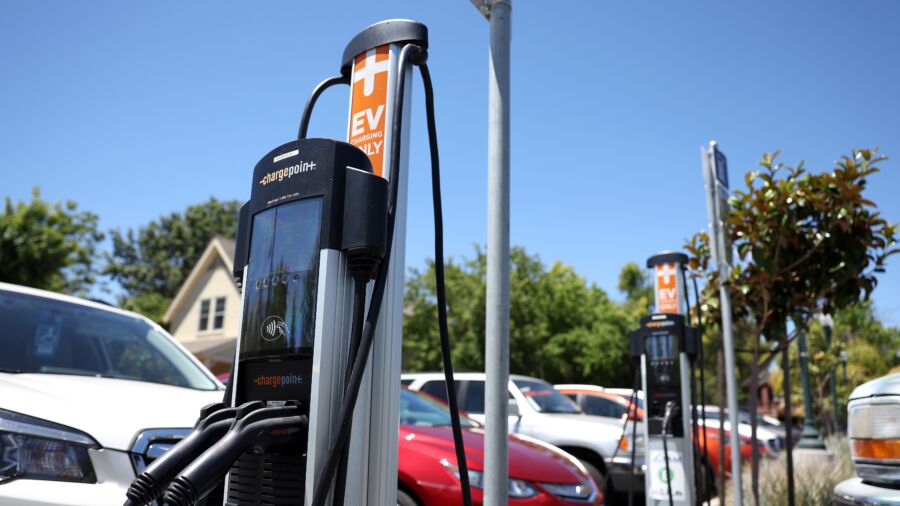The California Energy Commission (CEC) is taking new measures to facilitate more widespread use of electric vehicles in the state. On Feb. 14, the Commission approved a nearly $2-billion plan to accelerate the launch of statewide electric vehicle (EV) charging networks and hydrogen refueling stations.
The program is aimed at reinforcing infrastructure for EVs, including light and medium-sized vehicles, as well as heavy-duty zero-emission vehicles (ZEV) across the state via the Commission’s Clean Transportation Program over the next four years, making it the most extensive EV initiative in the United States.
The Clean Transportation Program was previously known as the Alternative and Renewable Fuel and Vehicle Technology Program. Its investments focus on zero-emission vehicle infrastructure projects throughout the state.
According to California’s Democratic Governor Gavin Newsom, around half of the ZEV infrastructure will be installed in areas experiencing higher levels of pollution. The CEC said it expects to add 40,000 new charging stations to the already existing roughly 94,000 public and shared private chargers.
“Our clean transportation future is here with more than one in four new cars sold in our state being electric,” said Gov. Newsom in a statement.
Patty Monahan, the CEC’s lead commissioner for transportation, said that the new initiative should serve everyone, including those in low-income and disadvantaged communities.
“By investing a bulk of funds to benefit low-income and disadvantaged communities, the state is making sure communities most in need have better access to chargers and less pollution from trucks and buses,” Monahan said in a statement.
A breakdown of the initiative shows around $650 million allocated toward light-duty EV charging equipment, while just over $1 billion will go toward supporting battery-electric and hydrogen fuel cell truck and bus infrastructure. A further $130 million will be set aside to boost zero-emission port infrastructure.
Roughly $50 million will facilitate additional opportunities for ZEV workforce expansion and development.
A recent assessment conducted by state legislators showed projections for charging stations required in the state over the next eleven years. According to the assessment, over 7 million EVs will require 1 million chargers by 2030, while just over 150,000 ZEVs will need almost 115,000 chargers in the same timeframe.
Meanwhile, projections for 2035 show that more than 2 million charging stations will be needed to facilitate over 15 million EVs, while over 260,000 chargers will be required to serve nearly 380,000 electric trucks and buses.
A survey conducted by J.D. Power last year shows that roughly a quarter of Californians consider EV charging services unreliable. The survey, which was also conducted across 4 other states—Colorado, New York, Illinois, and Florida—shows a similar trend across those states.
Moreover, despite a growing number of Californians having switched to EVs in 2023, concerns have been rising nationally over the functionality of EV charging stations in cold temperatures. On top of reduced charging capability during the cold winter months, EV batteries drain much faster when exposed to severe cold.
This results in a larger number of EVs with depleted batteries lining up at charging stations, with the car owners often having to wait several hours in line before then waiting for long periods for their batteries to charge.
Last month, car rental company Hertz announced it will sell off about 20,000 EVs from its existing fleet and replace them with gas-powered vehicles.


